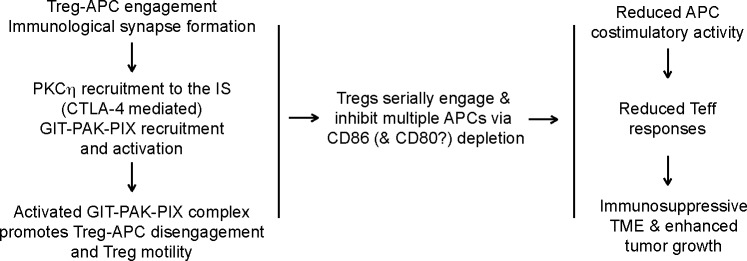Figure 6. A model for control of Treg contact-dependent suppressive activity by PKCη.
Following engagement of APCs by Tregs and formation of an immunological synapse (IS), PKCη is recruited to the Treg IS. PKCη interacts with CTLA4 in both mouse and human Tregs, and PKCη activation following CTLA4 engagement recruits and activates the GIT/PAK/PIX complex, which promotes IS disassembly and Treg motility. Activation of this complex is required for Tregs to inhibit the development of antitumor immunity in vivo and the suppressive activity of human Tregs in vitro. Efficient Treg/APC dissociation and enhanced Treg motility allow serial engagement of multiple additional APCs and depletion of their CD86 and/or CD80 costimulatory ligands by transendocytosis in a contact-dependent manner. This depletion would result in impaired APC stimulatory activity, reduced tumor-specific Teff cell responses, and, hence, promotion of tumor growth. Prkch−/− Tregs, in which the recruitment and activation of the GIT/PAK/PIX complex is impaired, are defective in serial engagement of, and depletion of CD86/CD80 from, APCs, resulting in enhanced APC stimulatory activity, a more effective Teff cell response, and reduced tumor growth. Our data implicate the CD103+ DC subset as an important APC target of Treg-suppressive activity in mice.

